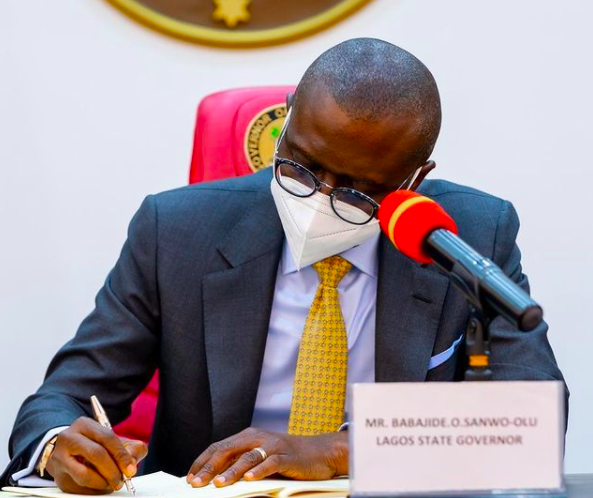News
Here’s What the New VAT Law Means For Lagosians
Recently, the Value Added Tax (VAT) legislation has been divisive, with some state governments battling with the federal government about who should collect consumption tax within their jurisdictions.
VAT is charged on the supply of goods and services in the country, including those imported into the country, except the goods and services specifically exempted under the VAT Act.
Originally the Federal Inland Revenue Service (FIRS) is in charge of collecting VAT on behalf of the 36 states and the Federal Capital Territory (FCT). The collected funds are subsequently divided among states.
On August 9, 2021, a Federal High Court in Port Harcourt ruled that Rivers State, not the Federal Inland Revenue Service, should be responsible for collecting Value Added Tax (VAT) and Personal Income Tax (PIT) in the state, The Will reports.
In his ruling, Justice Stephen Dalyop Pam issued a permanent enforcement action prohibiting FIRS and the Attorney General of the Federation – the first and second defendants in the claim – from collecting, demanding, threatening, and intimidating Rivers State residents to pay FIRS, personnel income tax, and VAT.
Lagos state then chose to follow suit. On September 9, the Lagos State House of Assembly approved the VAT bill on its second reading. Speaking on VAT collection, Mudashiru Obasa, Speaker of the Lagos House, stated that N500 billion is created in Lagos State, while N300 billion is generated in other southwest states, with just a part returned to the states. As a result, he instructed the Acting Clerk, Olalekan Onafeko, to forward a copy to Governor Sanwo-Olu for action. It was a unanimous vote on the floor of the legislature, Vanguard reports.
Governor Babajide Sanwo-Olu has now signed the bill into law.
The Nigerian Bureau of Statistics said that Nigeria earned N496.39 billion from VAT in the first quarter of 2021 alone, an increase from the N324.58 billion obtained in the same time in 2020.
PwC highlighted major suggestions of the Bill in a report, which seeks to create laws for the implementation and management of VAT in Lagos State.
The provisions cited in the tax law are:
- According to the bill, the Valued Added Tax would be administered by the Lagos State Internal Revenue Service (LIRS), at the rate of 6%.
- Section 16(2) requires an importer of taxable goods to pay the tax on the goods to the LIRS before clearing the goods (it is not clear how this will be implemented).
- Under the State VAT Bill, taxable persons are to register for the tax within 6 months of the commencement of the law or 6 months of commencement of business whichever is earlier. The commencement date is yet to be indicated.
- Based on section 9, nonresidents are to register for the tax if they carry on business in the state. There is no provision for self-charging of VAT.
- Monthly returns and remittance of VAT are due by the 21st of the succeeding month in a manner specified by the LIRS. This means the first return under the law will become due by the 21st of the month after enactment.
- The Bill cited that any appeal against the decision of the LIRS regarding the VAT matters goes to the VAT Appeal Tribunal to be established under the new law. Members are to be appointed by the governor on the recommendation of the Attorney-General and Commissioner for Justice.
- On revenue sharing formula, the Bill proposes VAT revenue is to be shared 75% to the state and 25% to the local governments, citing that there will be no registration exemption for small businesses unlike the N25m exemption under the national VAT Act.
























